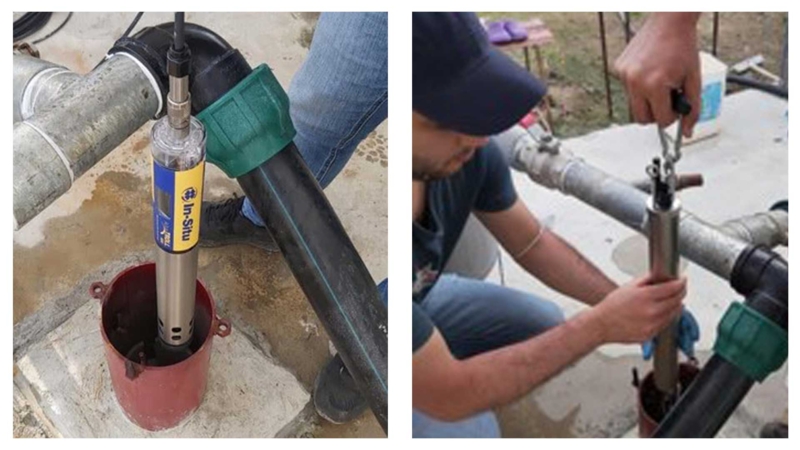Groundwater Salinization Research Benefits from Remote Monitoring
Published on by Marcus Miller, Digital Marketing Manager at In-Situ
Groundwater Salinization Research Benefits from Remote Monitoring
Overview
As part of the MEDSAL project, Mersin University in Turkey installed continuous monitoring equipment to gather data on parameters critical to groundwater salinization research.
Challenge
In 2019, PRIMA (Partnership for Research and Innovation in the Mediterranean Area) and the European Commission founded the MEDSAL project, bringing together eight academic partners from seven countries: Greece, Germany, Cyprus, Italy, Tunisia and Turkey to study groundwater salinization in the Mediterranean. Chief among the project’s aims, as laid out in the initial press release, is to “secure the availability and quality of groundwater reserves in Mediterranean coastal areas, which are amongst the most vulnerable regions in the world to water scarcity and quality degradation.”
MEDSAL identifies groundwater salinization as the predominant threat to groundwater quality and availability in the Mediterranean. Saltwater intrusion due to sea level rise is a well-known cause of salinization, but lack of internal drainage, saltwater upconing, over-abstraction, pollution, or evaporite dissolution in the soil can all contribute to increasing saltwater content in aquifers and harm groundwater quality.
These processes are complex and vary by region, influenced by geologic formations and other environmental factors. Several factors can exist concurrently, leading to a cascading salinization effect that makes it even more difficult to assess risks to groundwater quality and identify constructive action. More baseline data is needed to understand the causes of salinization and develop effective management plans that take regional variation into account.
Solution
MEDSAL partners pledged to collect continuous groundwater monitoring data in their regions over a three-year period. Data on level, conductivity, salinity, temperature, pH/ORP and dissolved oxygen will further the understanding and identification of groundwater salinization causes and contribute to the development of risk assessment and modelling tools and sustainable management practices.
Mersin University in Turkey installed two Aqua TROLL 500s in monitoring wells in June of 2020 to collect data for MEDSAL, which was financially supported by the national funding agency TÜBİTAK (Grant No. 118Y366). The sites were about an hour outside Mersin, so the research team used telemetry devices to transmit data back to the university office and cut down on driving time. The Aqua TROLLs took measurements every hour and telemetry sent data to HydroVu every six hours for analysis.
The sondes were installed 30 meters deep in the wells, and at that distance the telemetry devices periodically dropped their connection with the instruments. Mersin University reached out to In-Situ to replace their devices with VuLink telemetry. At the time, post-pandemic supply chain issues had created long lead times for VuLinks, so In-Situ sent the Mersin team two rental Aqua TROLL 600 units with internal logging capacity to prevent data loss until telemetry could be installed. In May of 2021, the VuLinks made it to the site. The research team reinstalled the Aqua TROLL 500s and returned to their remote-monitoring setup.
Results
Enotek, the distributor that provided Mersin University with the sondes, reported the...
Taxonomy
- Groundwater
- Water Monitoring
- Groundwater Recharge
- Groundwater Assessment
- Groundwater Modeling
- Groundwater Pollution
- Groundwater Prospecting
- Groundwater Mapping
- Surface-Groundwater Interaction
- Groundwater Salinisation
- Groundwater Quality & Quantity
